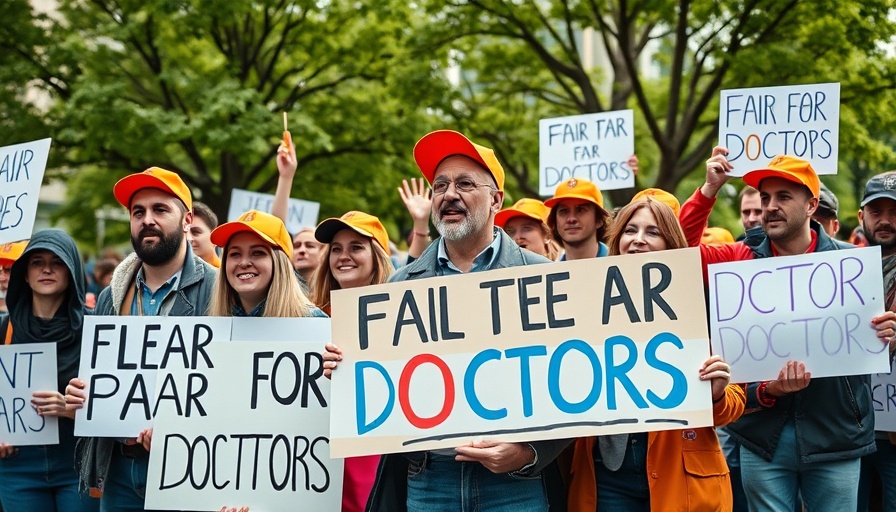
Doctors poised for unyielding action
Resident doctors are gearing up for a historic strike that could alter the landscape of the NHS. Scheduled from July 25 to July 30, this planned five-day walkout is not just a routine grievance; it’s a resounding protest against unfair pay and working conditions that have persisted for years.
Key figures in the negotiations
Health Secretary Wes Streeting has engaged in what he describes as "constructive" discussions with the British Medical Association (BMA). However, amid these discussions, the government has firmly anchored its position, unwilling to budge from a meager 5.4% pay rise introduced following two years of significant increases. Doctors argue this raise is inadequate—real terms pay remains about 20% lower than in 2008, according to data reflecting the Retail Price Index (RPI).
The harsh reality of doctor pay
The BMA's dissatisfaction stems from an alarming trend: amid rising inflation rates, which inevitably drive up living costs, the compensation offered falls short of reflecting the realities faced by medical professionals. The RPI measures inflation more realistically, incorporating housing costs and student loan interests that are particularly burdensome for young doctors.
Creative solutions on the negotiation table
During discussions, Streeting hinted at unconventional solutions, such as potentially writing off parts of medical student loan debt, revealing the government’s awareness of the pressures young healthcare providers face. These talks haven't simply revolved around pay; they reflect an earnest search for ways to enhance the quality of life for resident doctors. Dr. Ross Nieuwoudt of the BMA indicated the discussions have been wide-ranging, emphasizing the union's openness to explore various avenues for improvement.
The significance of the strikes
The potential strikes signify more than a financial dispute; they stand as a bellwether for the NHS's resilience against a backdrop of increasing challenges. The doctors’ resolve comes from being pushed to a corner without a credible offer that would realistically address their concerns. Each day without a resolution increases the stakes for both sides, with the fallout unavoidable for patients who depend on these essential services.
Calls to action
Streeting's plea to call off the strike underscores the government's acknowledgment of the ramifications; strikes disrupt not only the daily operations of medical services but also deeply impact patient care. Doctors are warned against taking such drastic measures, citing the collateral damage of their actions. Yet, can anyone honestly expect them to continue under these circumstances without a legitimate reassessment of their pay and working conditions?
Community response
For people in Leicestershire and beyond, this conflict is not merely a clash of interests; it grips the community by the throat, demanding scrutiny and discussions around the importance of investing in healthcare. The philosophical underpinning is straightforward: if you do not value your healthcare providers, you risk losing the very foundation of public health.
The onus now lies on both sides to harness this moment for genuine reform. Waiting for one side to inflict pain on the other isn’t a solution—it's a path to mutual destruction.
The time for action is now. Engage in dialogues within your community about these pressing issues; understand the stakes involved. Advocate for fair treatment of medical professionals in the NHS and push for systemic changes that benefit not only the doctors but also the patients they serve. Your voice matters in the fight for a healthy future.
 Add Row
Add Row  Add
Add 




Write A Comment